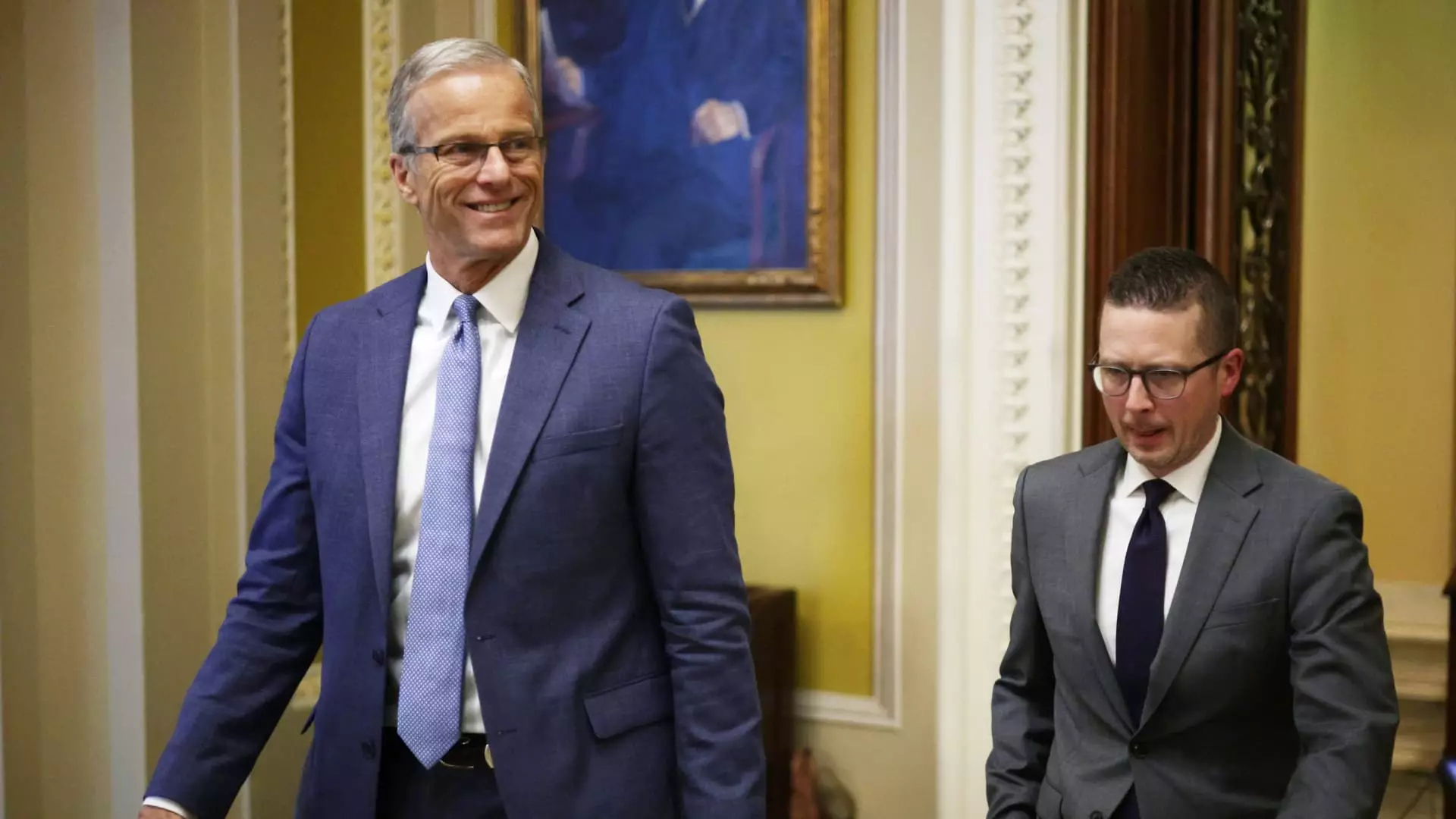The recent passage of President Trump’s hefty legislative proposal in the Senate reflects a tumultuous and deeply divisive political process. With a razor-thin 51-50 vote, only secured through Vice President JD Vance’s decisive tie-breaker, this victory must be viewed through a critical lens. It underscores the precariousness of bipartisan cooperation and hints at underlying tensions that threaten to undermine meaningful policy progress. The fact that three Republican senators—Thom Tillis, Rand Paul, and Susan Collins—chose to break ranks and vote against the bill signals a troubling erosion of unified party discipline, revealing fissures within the conservative bloc and raising questions about the bill’s ultimate viability.
While Senate Majority Leader John Thune called it a triumph, the reality is far more uncertain. The bill’s journey into the House introduces new challenges—opposition from conservative House Republicans who suspect that the legislation, under the guise of a sweeping domestic policy agenda, might do more harm than good in the long term. This dynamic exemplifies how even a narrowly-passed bill can face insurmountable hurdles once it encounters the more conservative, hard-line elements of the legislative process. The legislative process thus exposes the fragility of political consensus when core ideological priorities are at stake.
Deepening Divisions and Economic Concerns
The bill’s ambitious scope includes provisions that could significantly reshape domestic policy, with particular implications for social safety nets like Medicaid. The nonpartisan Congressional Budget Office’s projection of a $3 trillion increase in the federal deficit over ten years highlights the economic risks involved. Such staggering numbers threaten to deepen existing partisan divides, especially among fiscal conservatives concerned about long-term debt sustainability. The fact that these concerns persist despite the bill’s passing in the Senate suggests there is little room for complacency.
House Republicans are already signaling their dissatisfaction with the changes made in the Senate, particularly the deeper Medicaid cuts. Many members remain skeptical of the legislation’s economic impact, advocating for fiscal responsibility in an era where debt levels have become an economic vulnerability. House Speaker Mike Johnson’s narrow majority, which hinges on a slim four-vote margin, means that the bill’s future is anything but guaranteed. The risk of internal party conflicts intensifies, especially as conservative factions express readiness to block the legislation once more. The legislative process, thus, appears poised on a knife’s edge, with economic concerns fueling resistance.
Politicization and Strategic Negotiations
Behind the scenes, political maneuvering has become the norm rather than the exception. GOP leaders spent days negotiating with hold-outs, trying to keep the bill afloat amid threats to sink it entirely. While the marathon amendment sessions involved no fundamental change to the core of the bill, Democrats succeeded in forcing GOP colleagues into difficult votes on some politically sensitive issues, exploiting procedural tactics to hold the opposition accountable. This tactic exposes the deep partisan divide that now characterizes legislative debates, often turning policy battles into symbolic contests rather than genuine efforts to solve pressing issues.
The bill’s impending move to the House injects a new layer of uncertainty. Frustration among conservative House members, exemplified by Rep. Chip Roy’s outspoken opposition, indicates that partisan loyalty will be tested once again. Roy’s warning about Senate plans to impose what he considers a ‘weaker’ version of the bill and his refusal to support the legislation as proposed signals a broader challenge to party unity. The looming July 4 deadline, pushed by Trump’s intensified lobbying campaign, underscores the political pressure cooker environment that risks pushing policymakers toward rushed, perhaps shortsighted, decisions rather than thoughtful compromises.
The Power of Perception in a Divided System
Ultimately, the passage of Trump’s legislation is an act of political spectacle more than a decisive policy triumph. It exposes how legislative achievements are increasingly fragile artifacts, vulnerable to internal party fractures and external political pressures. The partisan dynamics—ranging from ideological purists to pragmatic centrists—highlight a system that often prioritizes immediate political wins over long-term strategic stability. This legislation’s fate is not merely about policy substance; it’s about the ability of legislative bodies to navigate the treacherous waters of modern political polarization, balancing ideals with pragmatic governance.
The victory, therefore, should be viewed with skepticism: an ephemeral success that could quickly unravel as the lower chamber readies itself for another battleground. The intense lobbying, the procedural tactics, and the ideological rifts all reflect a political climate where consensus is increasingly elusive. The bill’s future remains highly uncertain, and its passage symbolizes not just legislative achievement but also the deep divisions that threaten the foundational stability of the policymaking process.


Leave a Reply